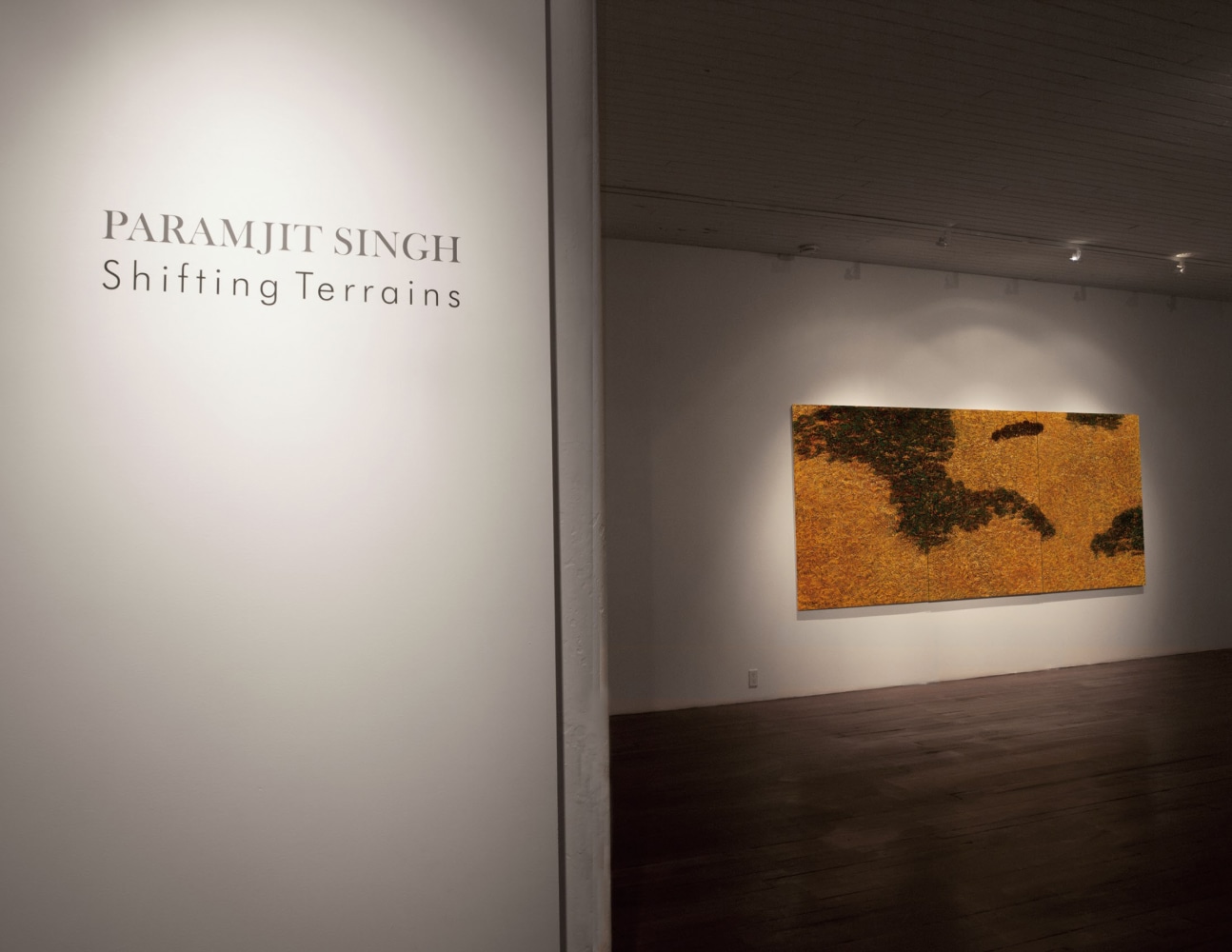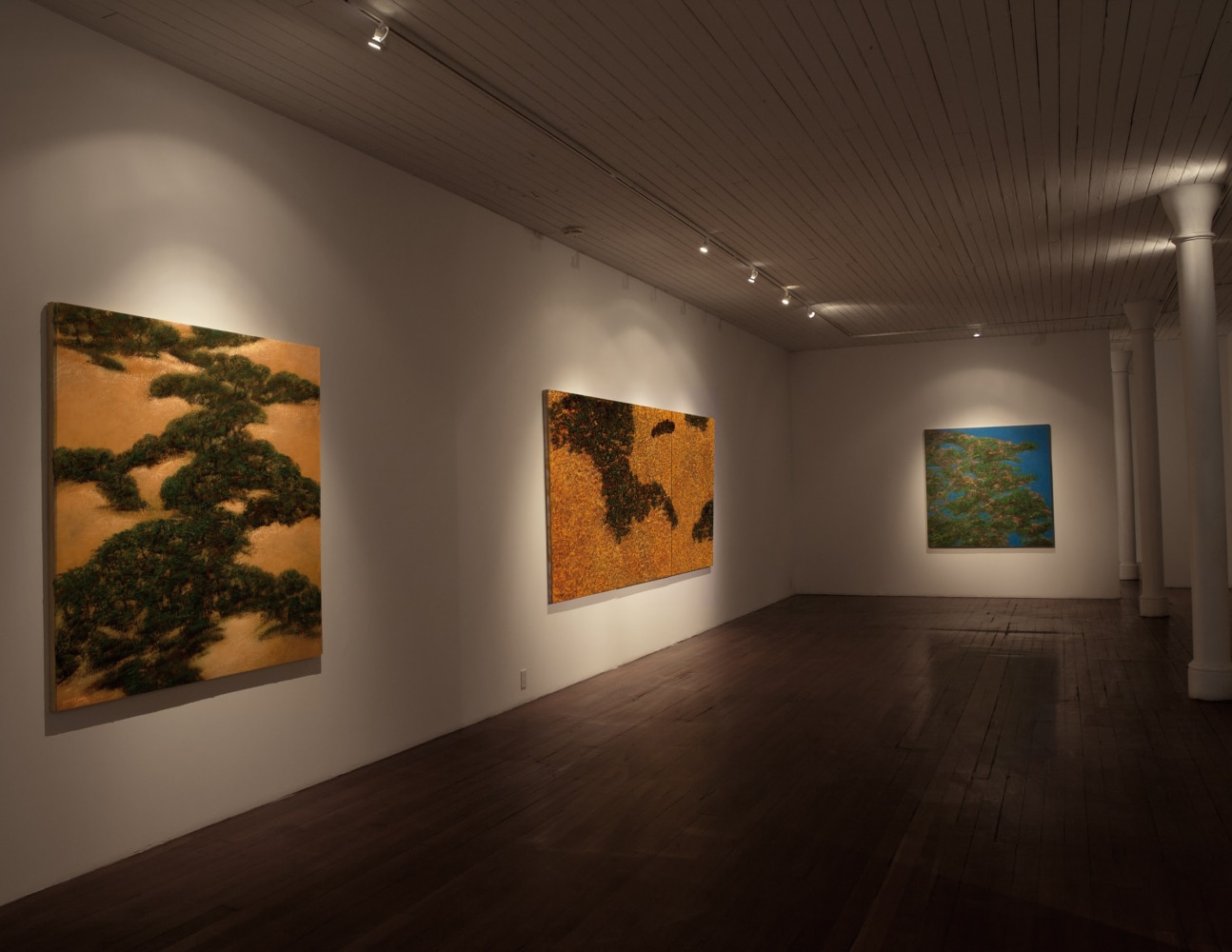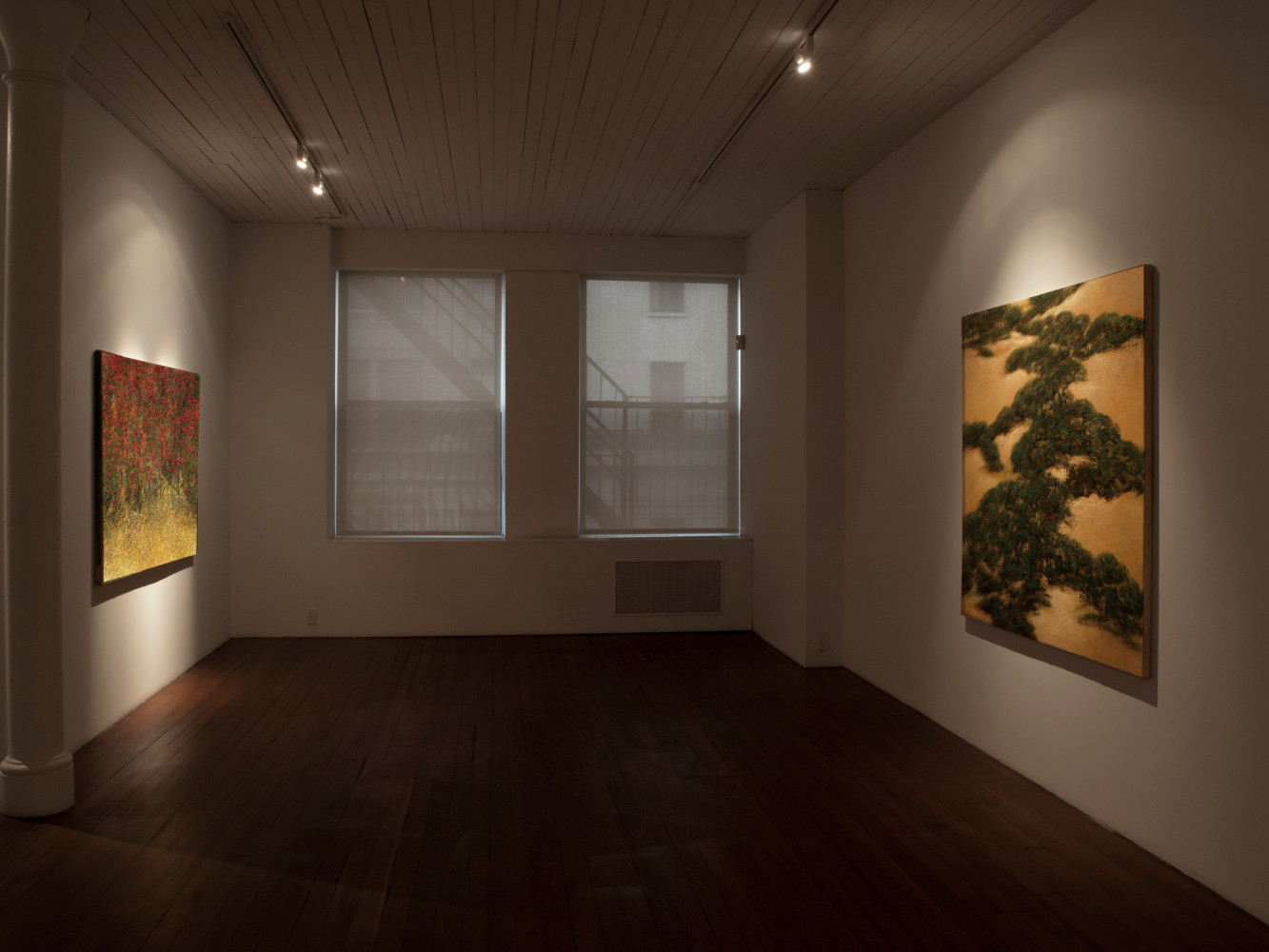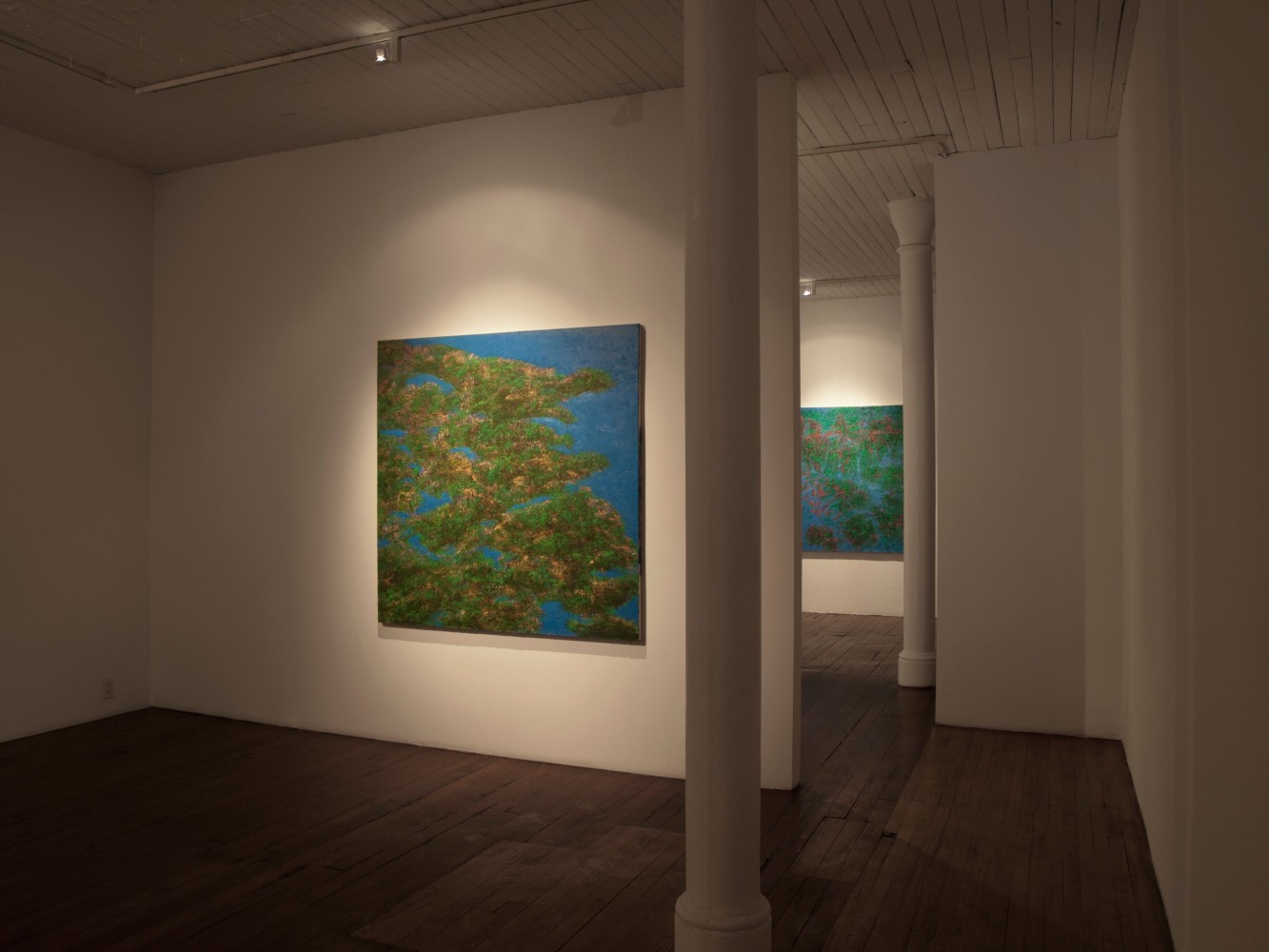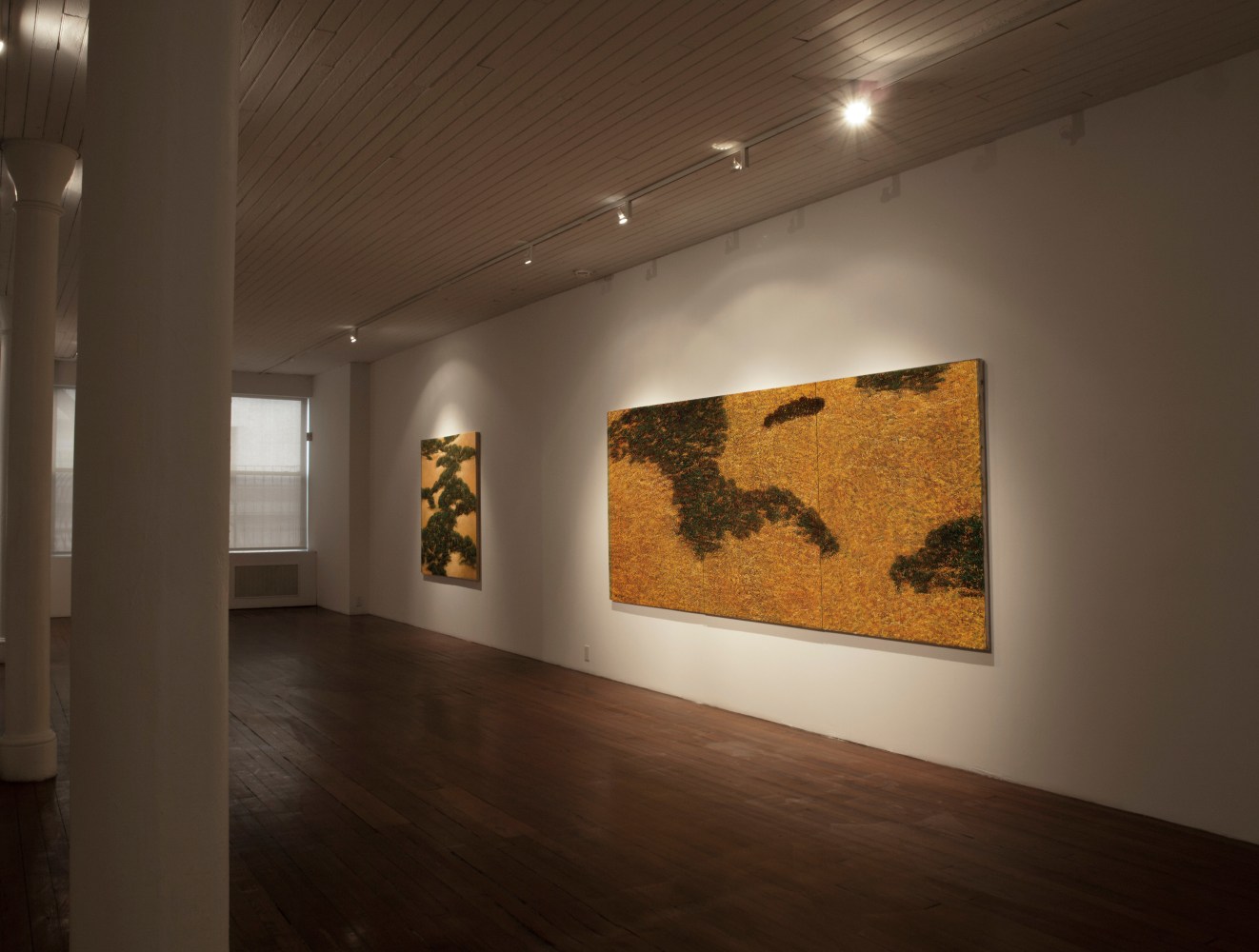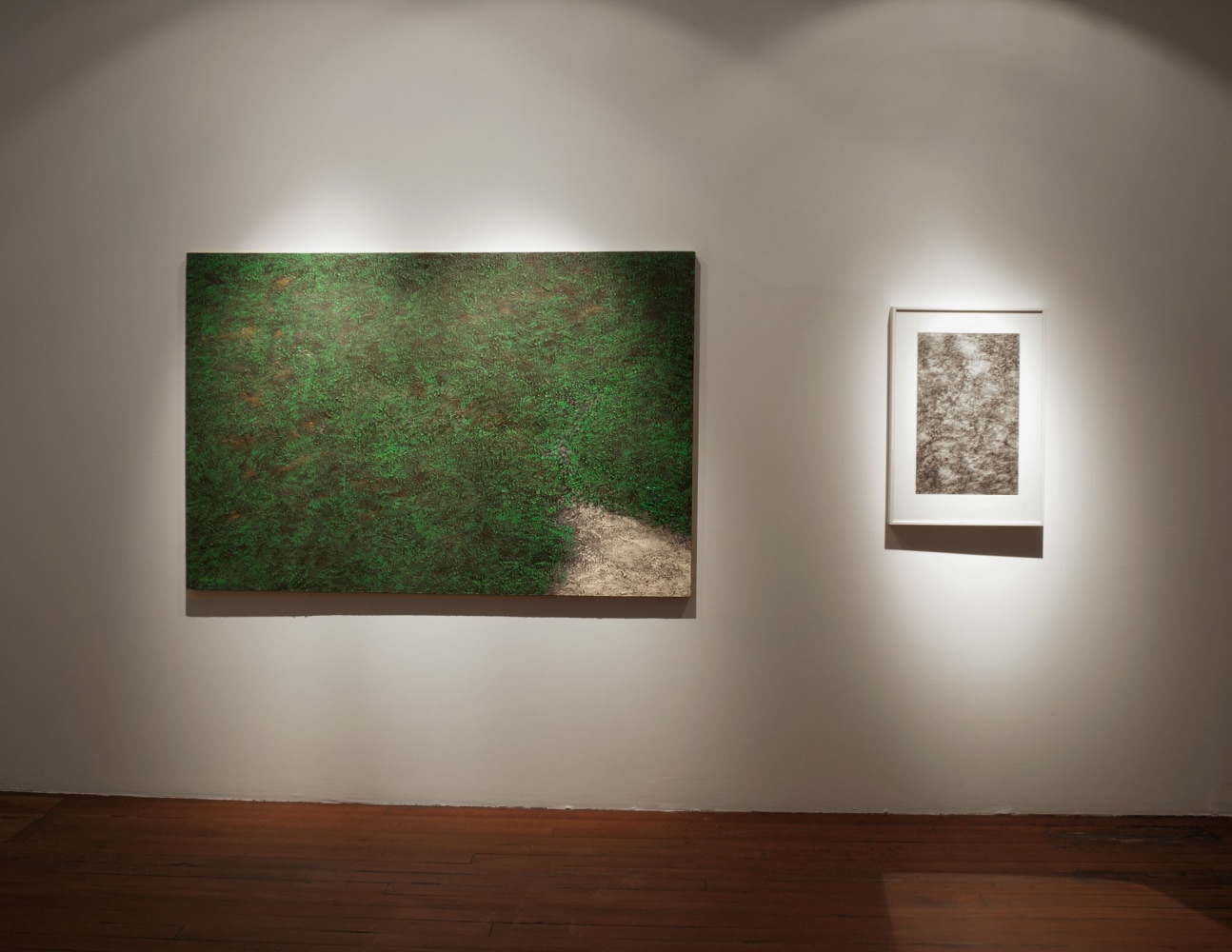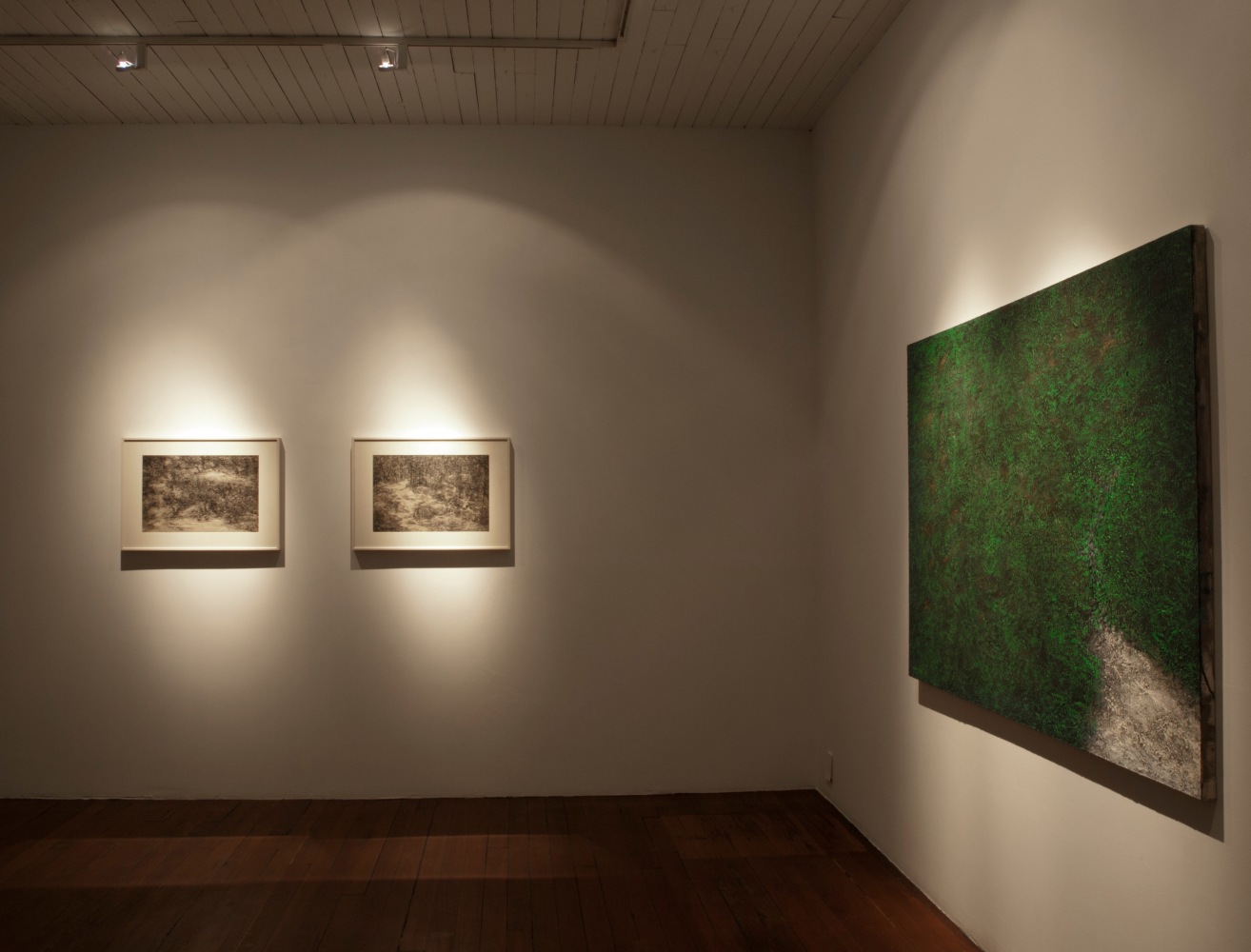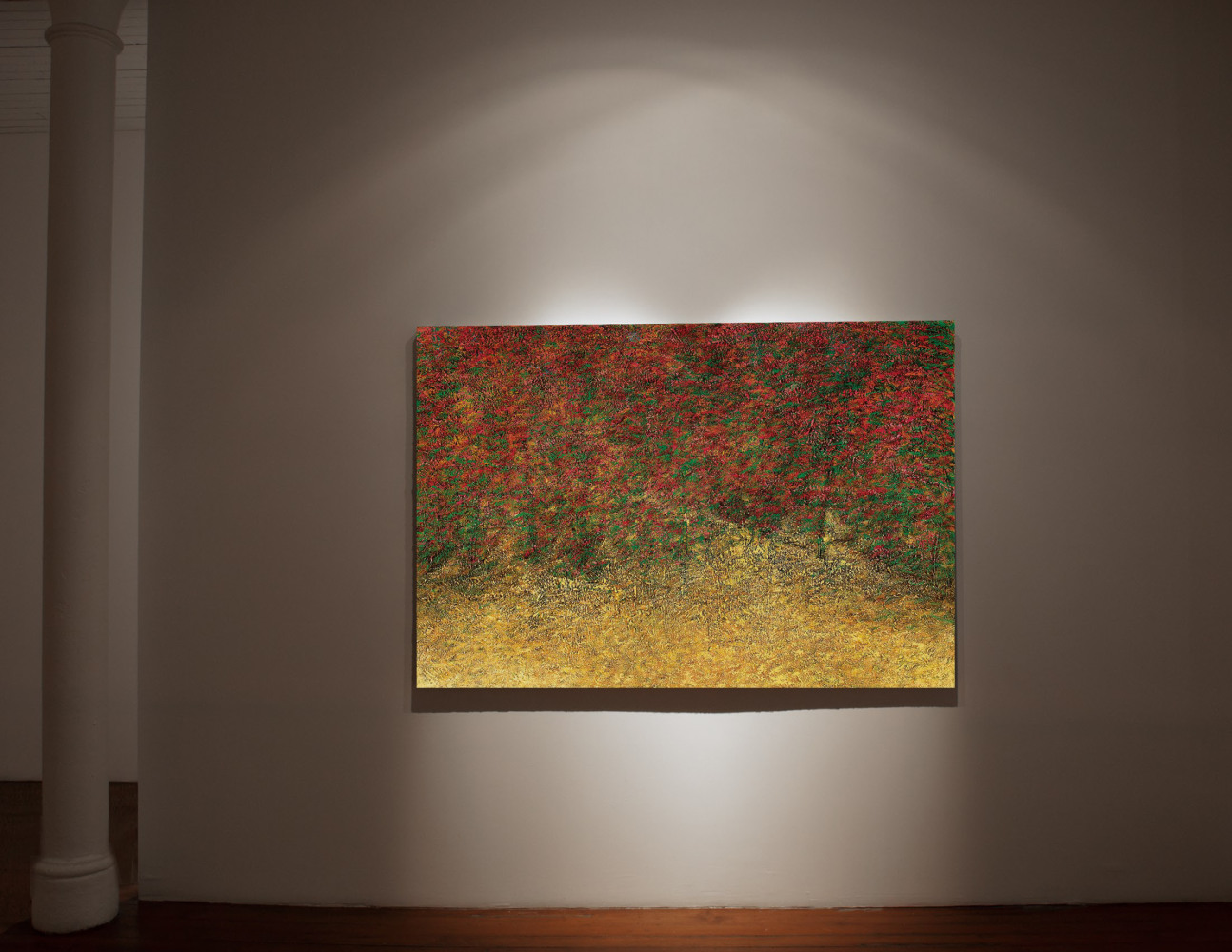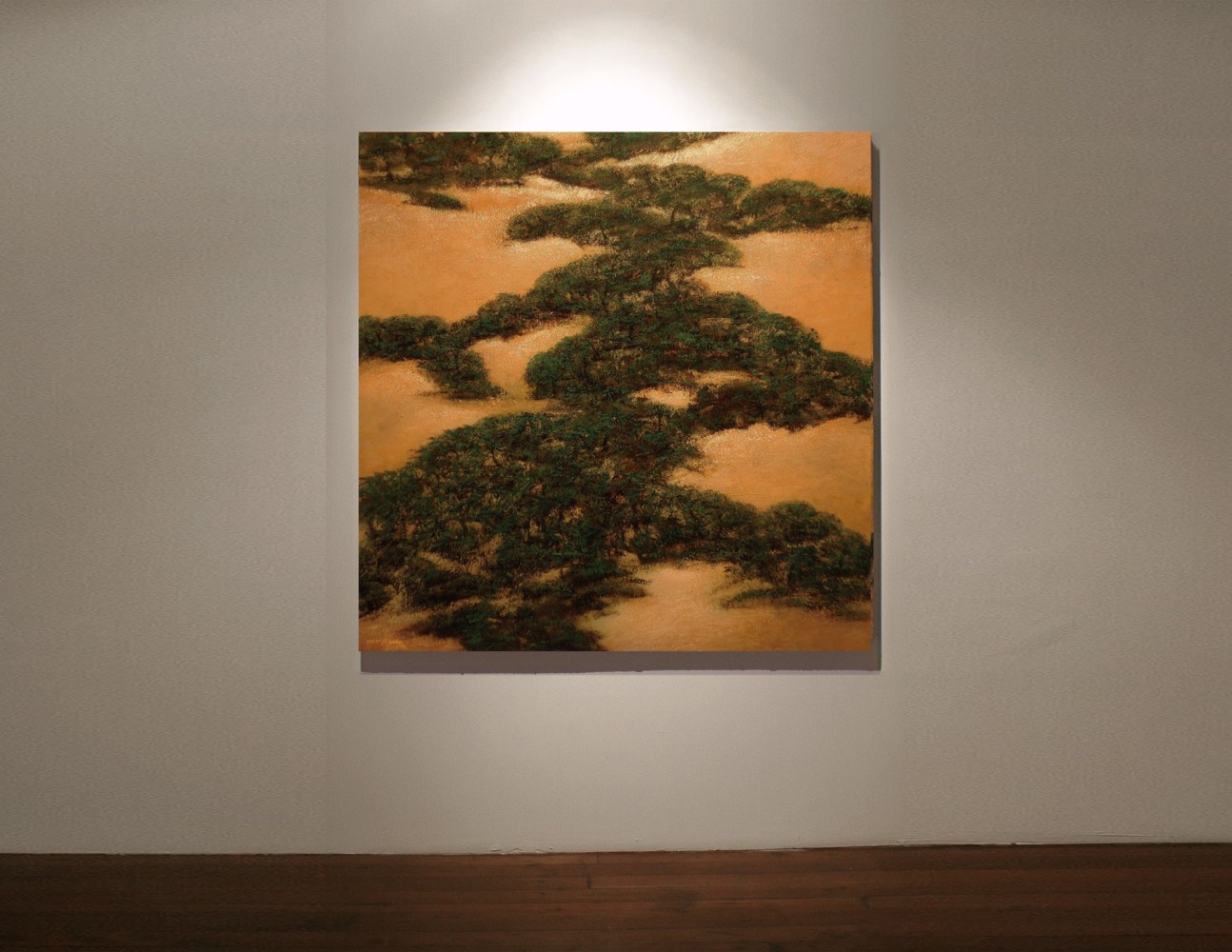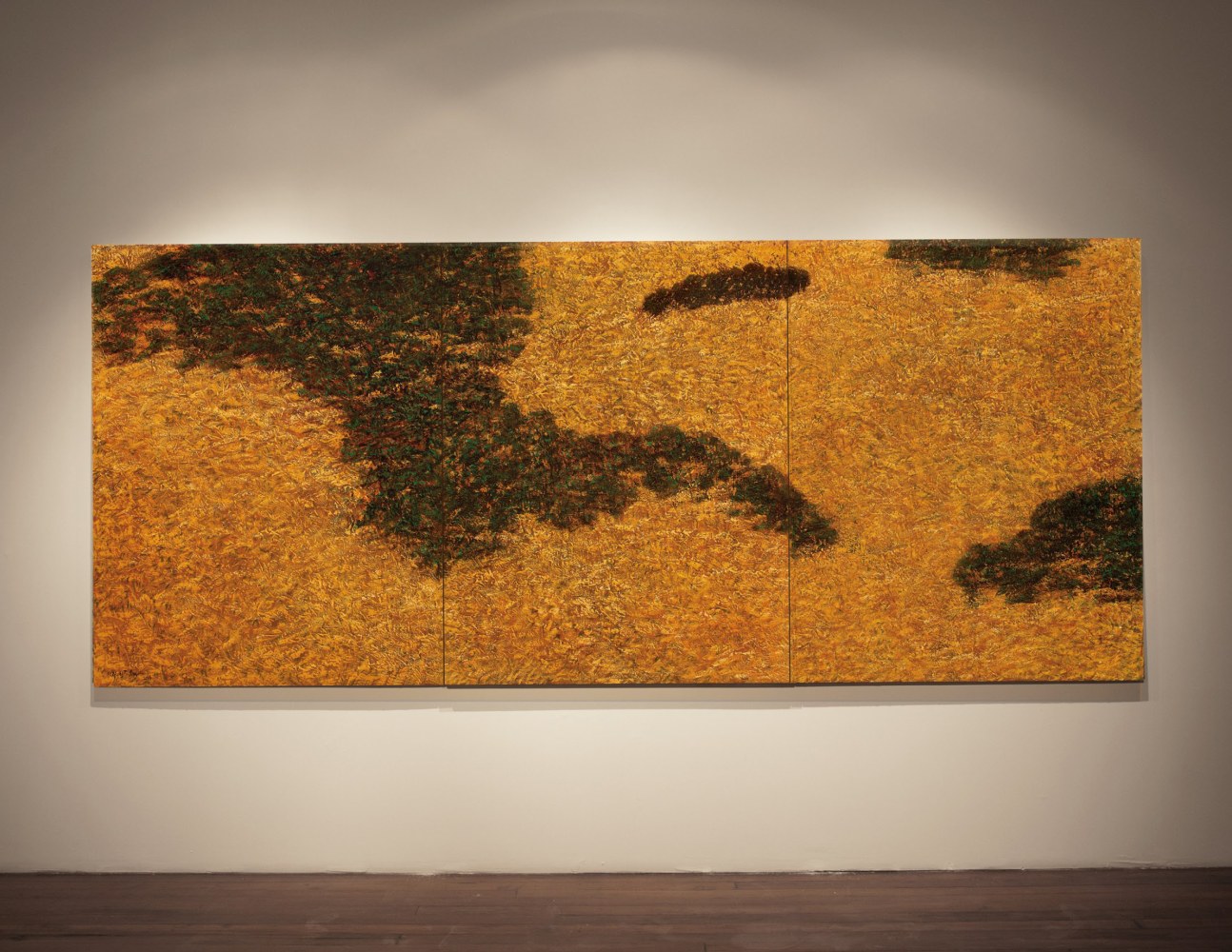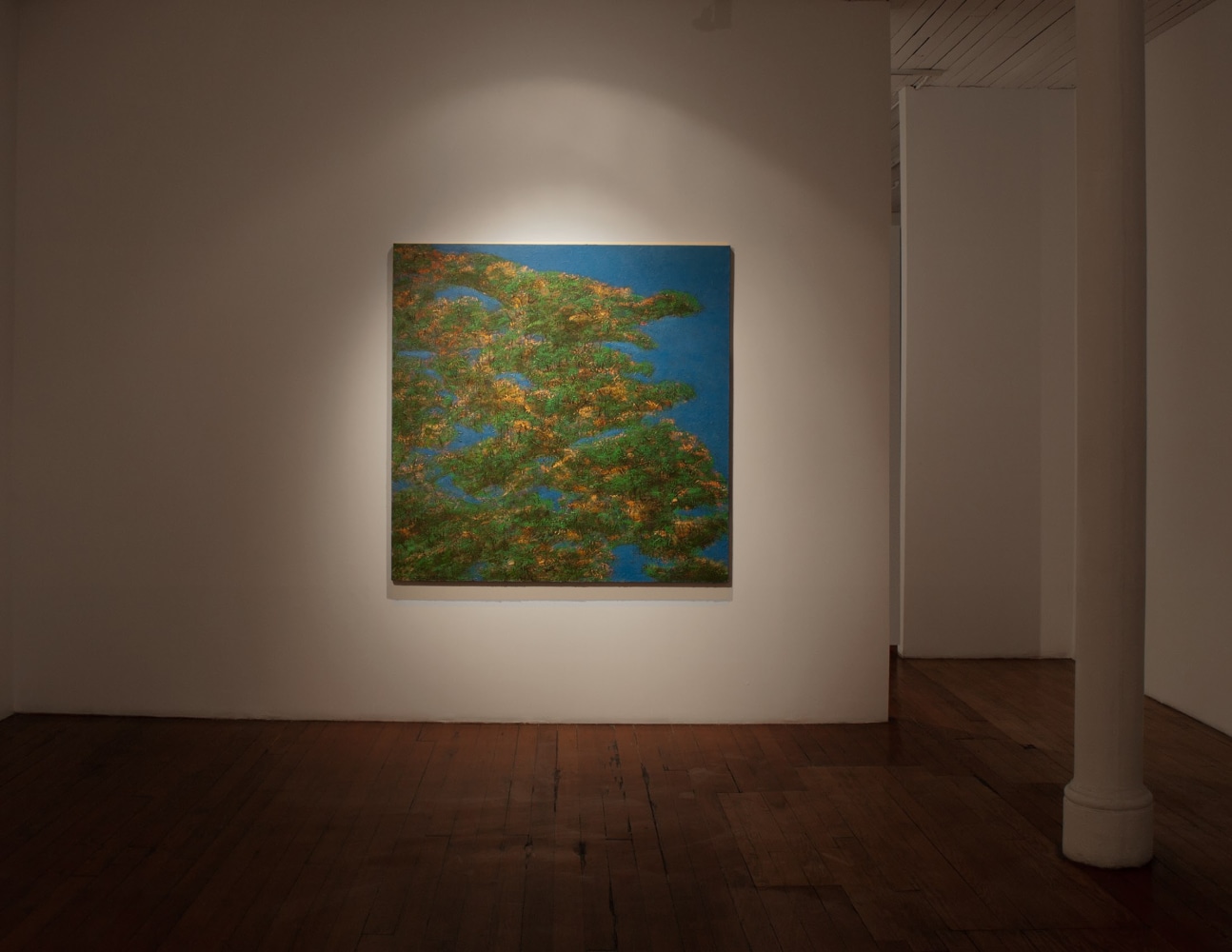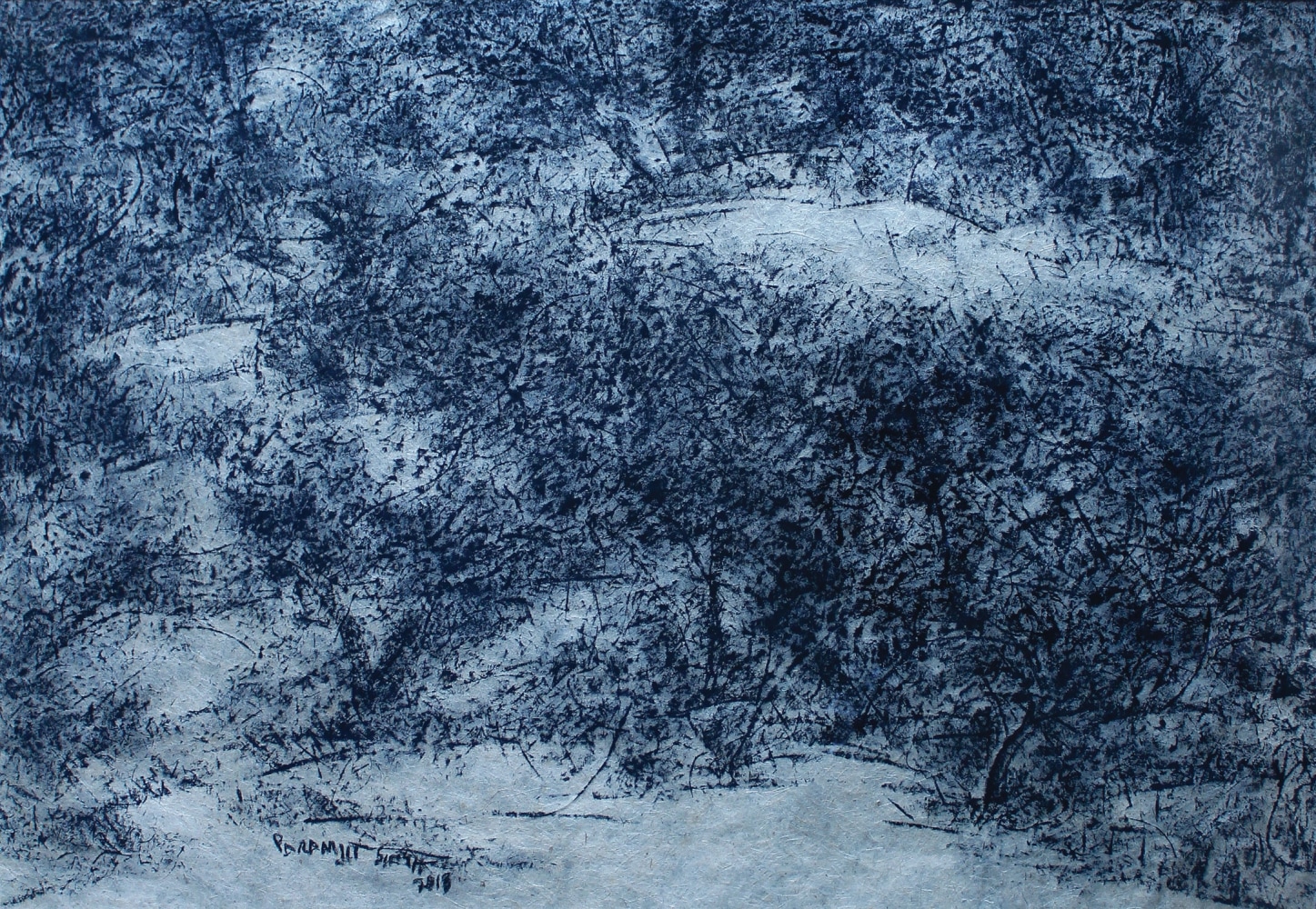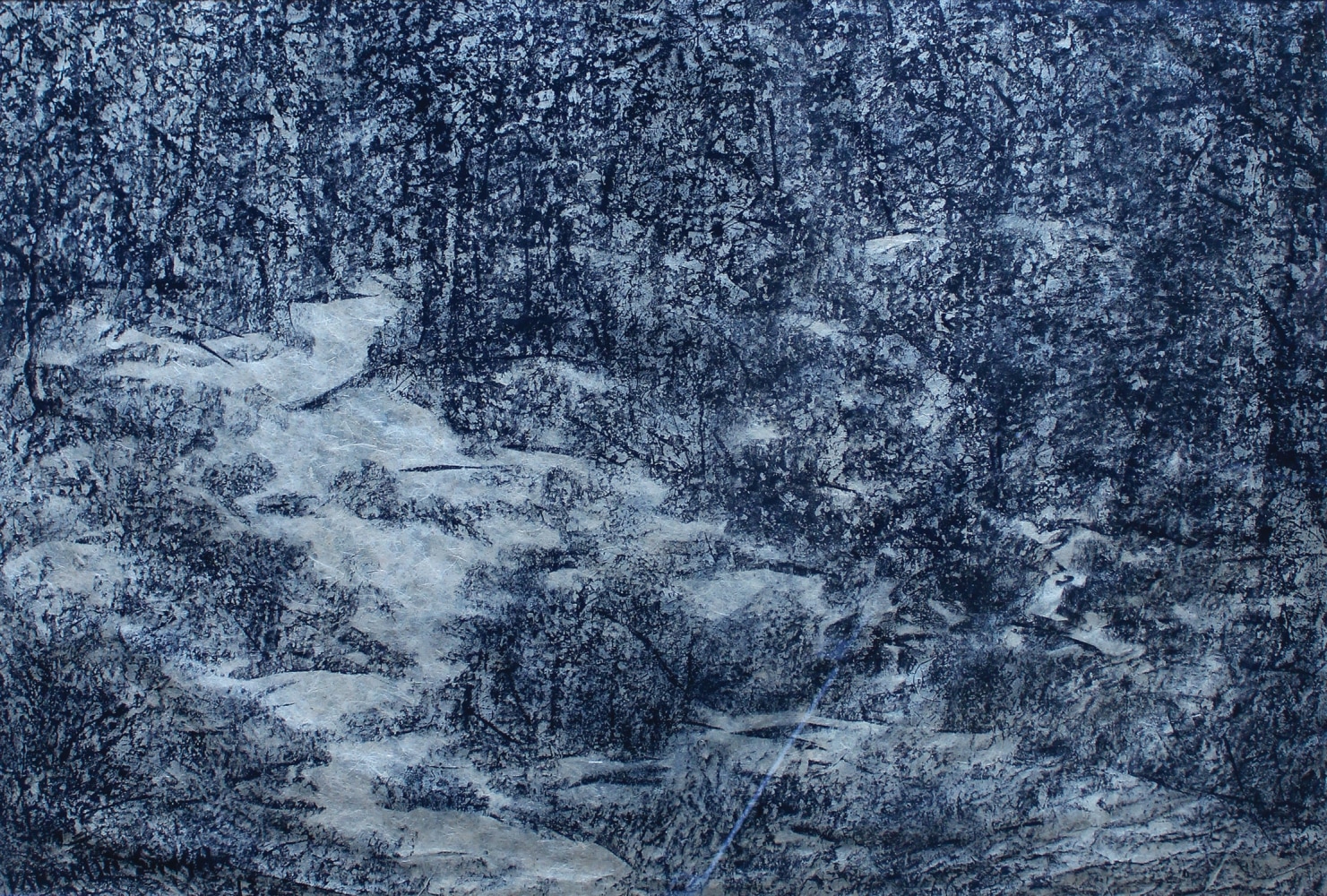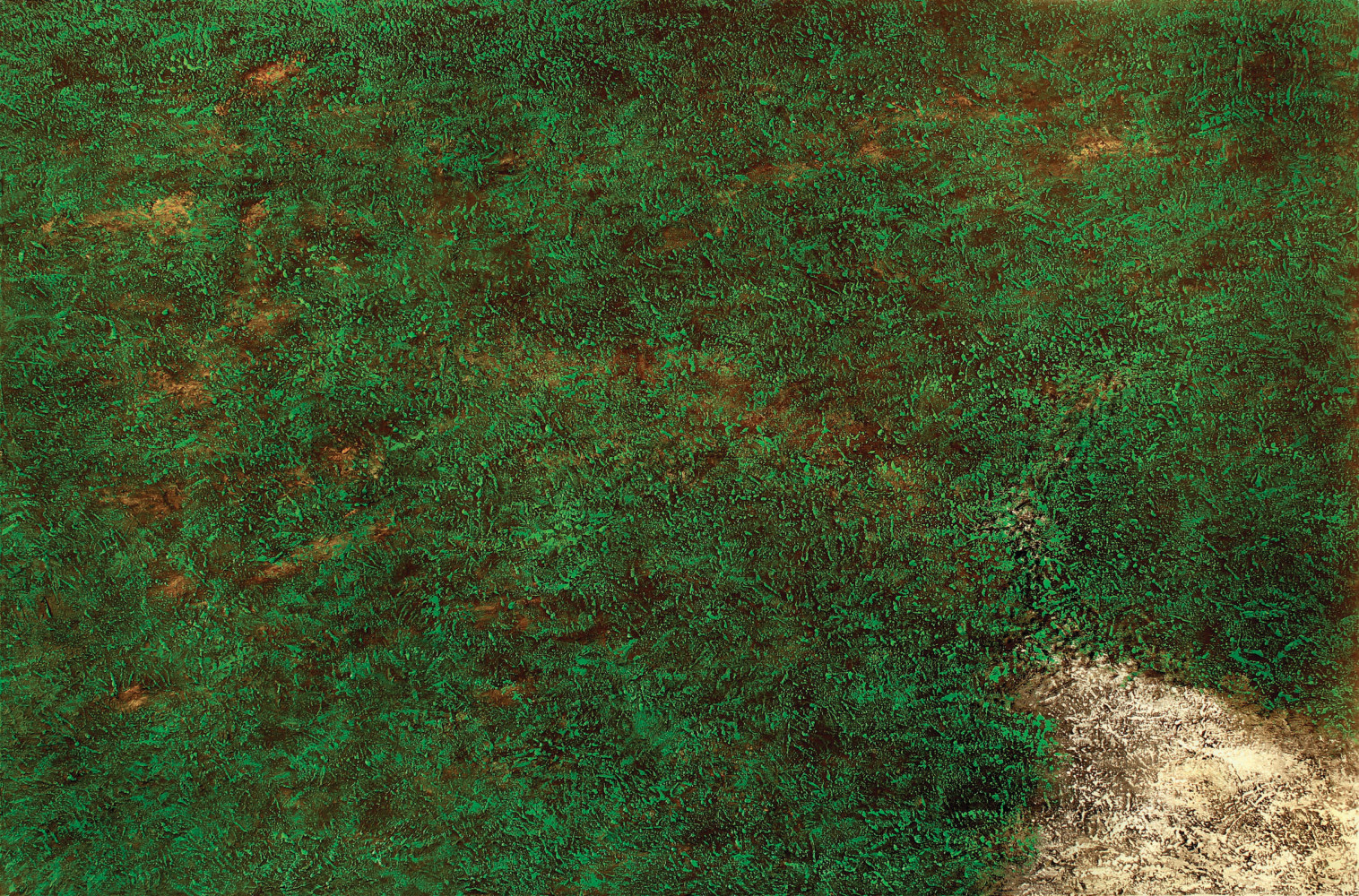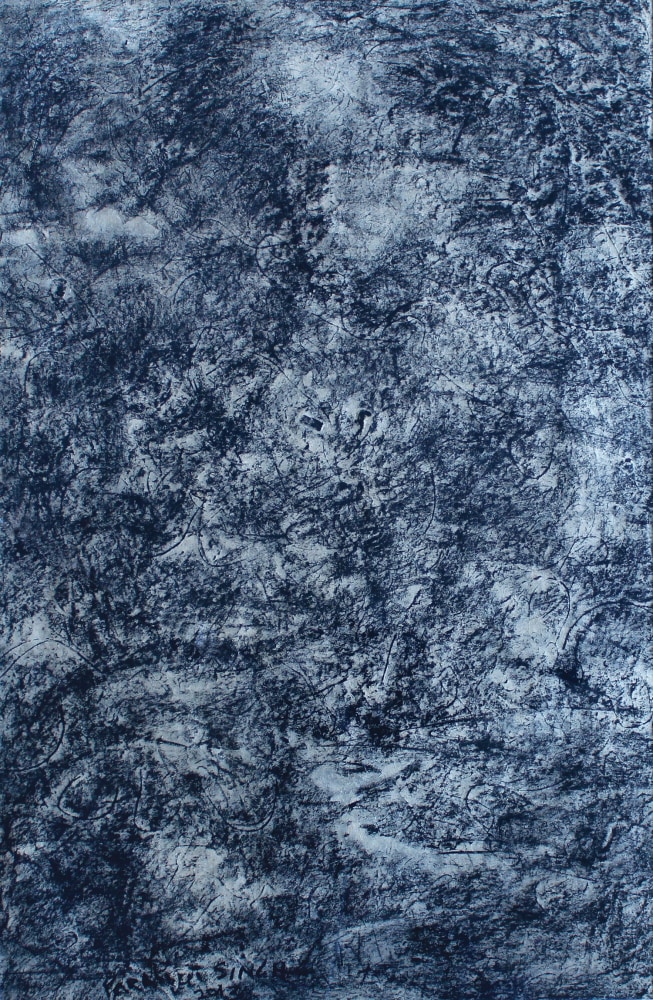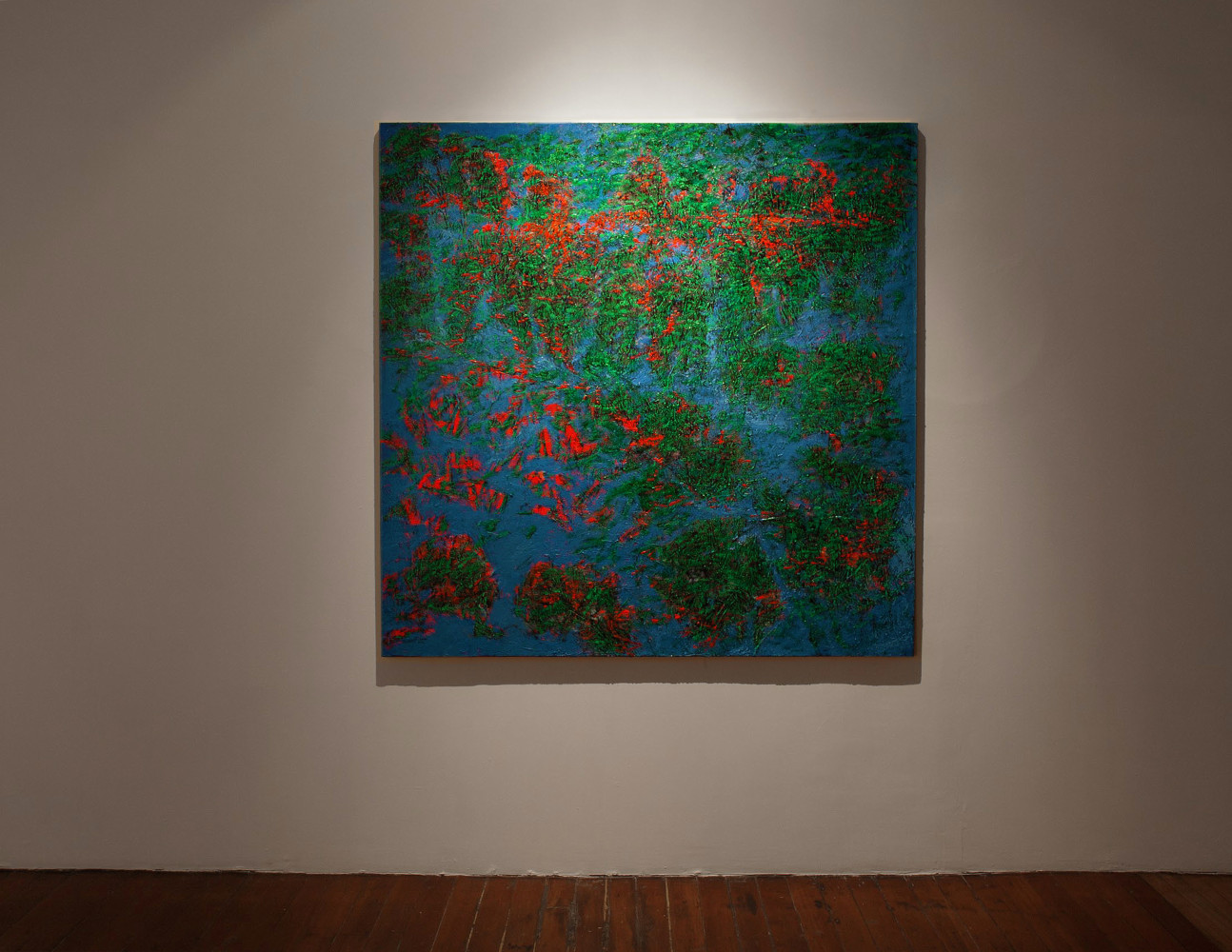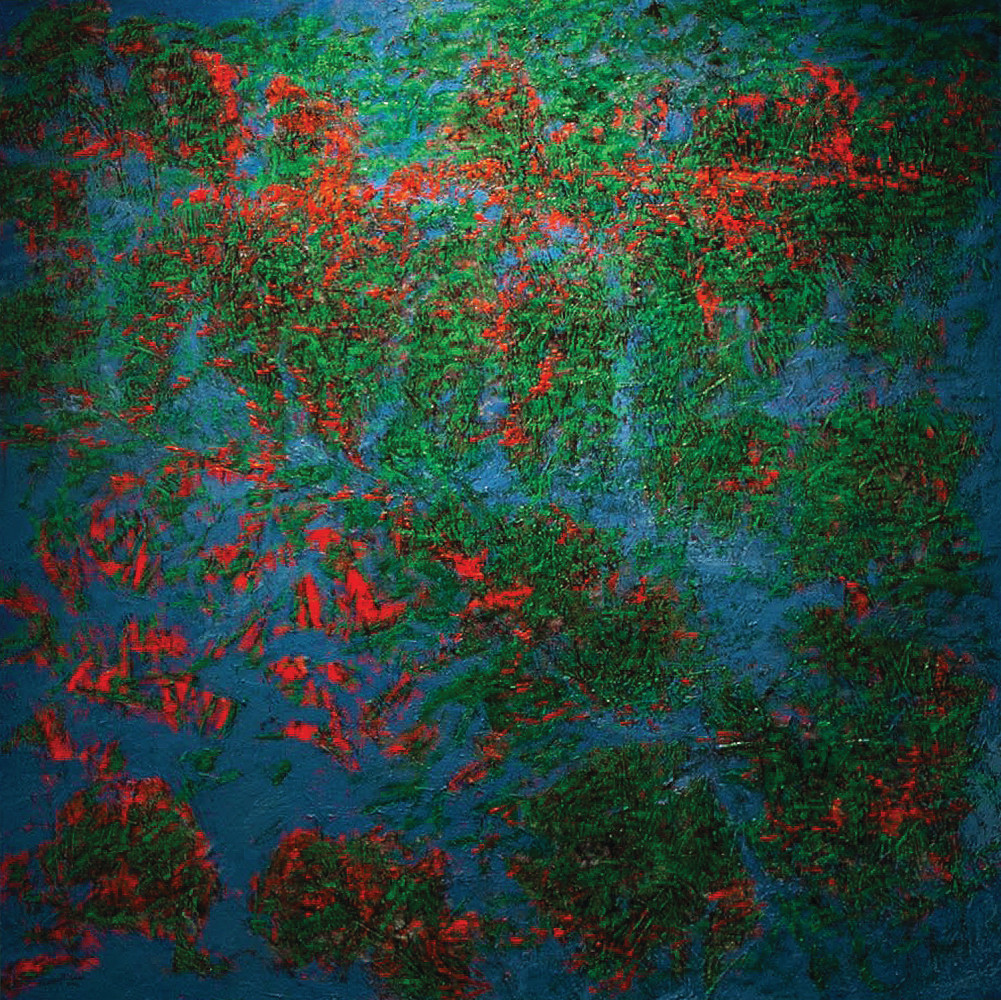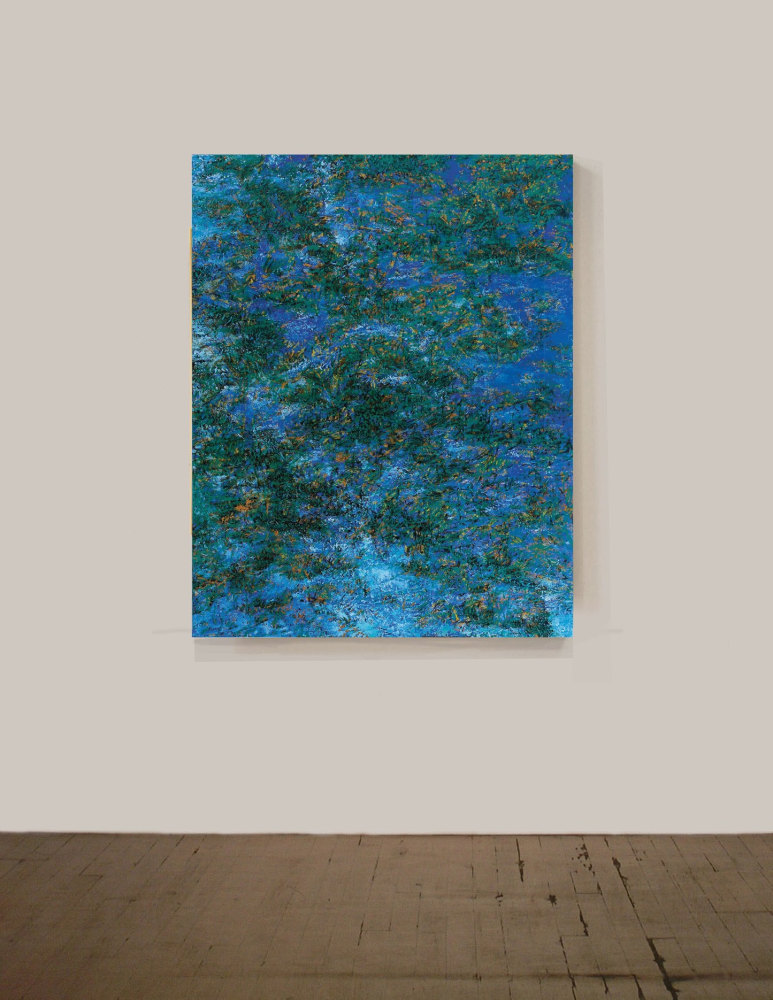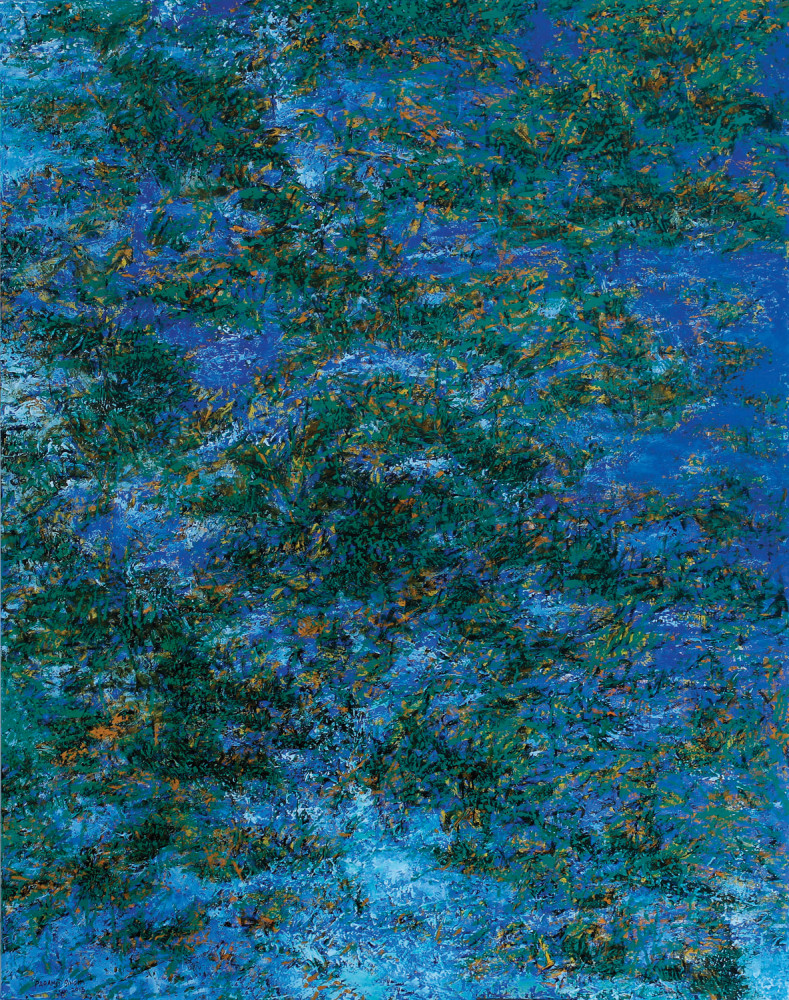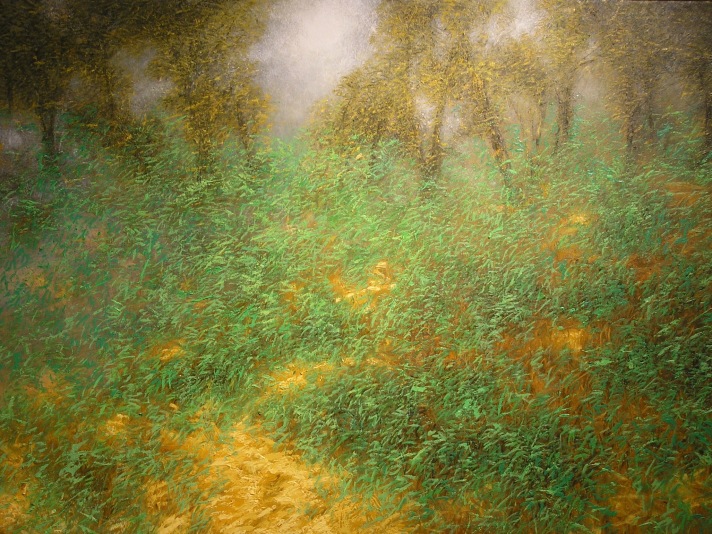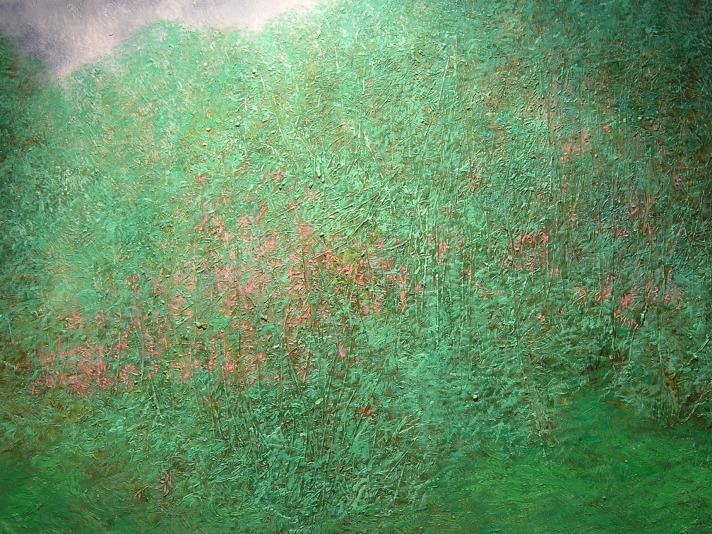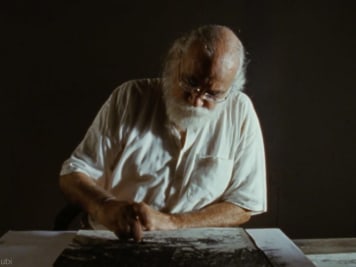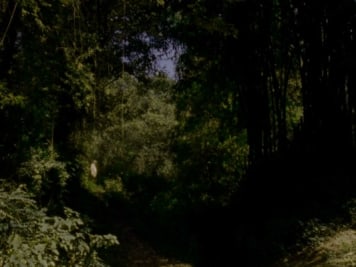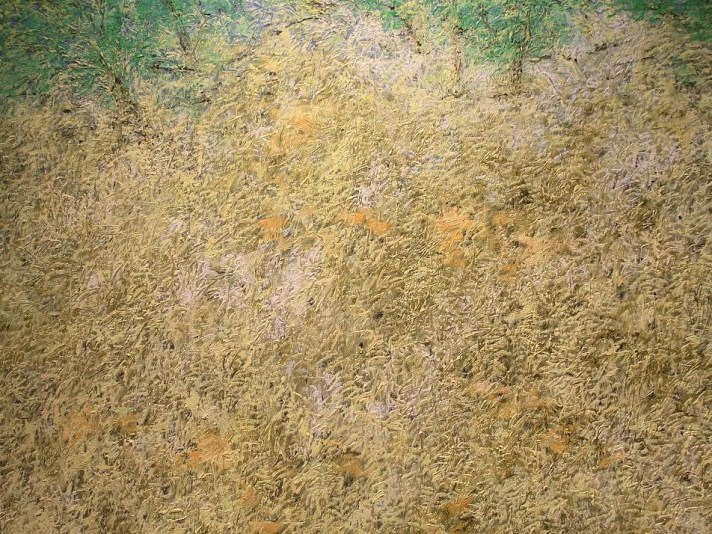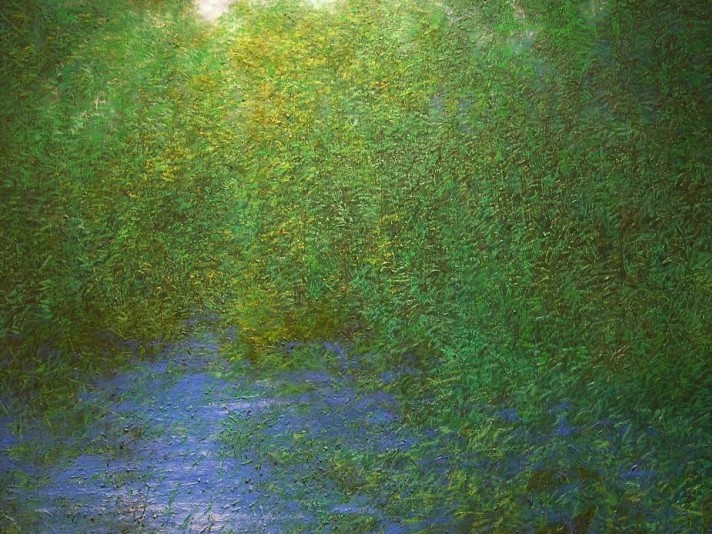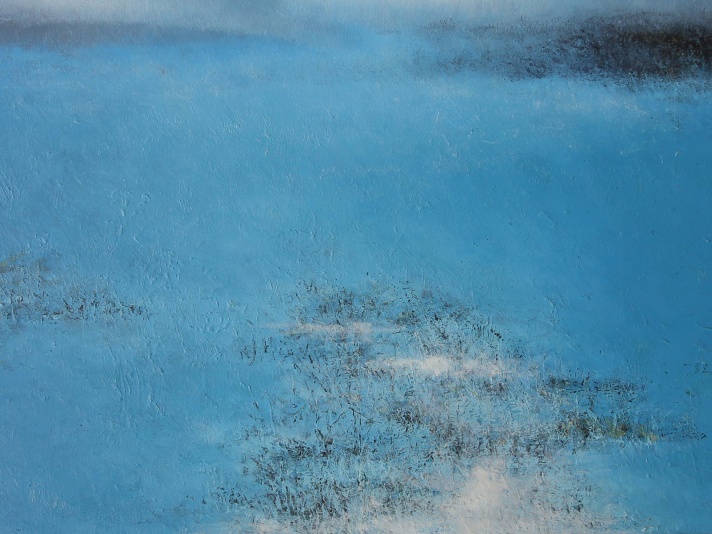
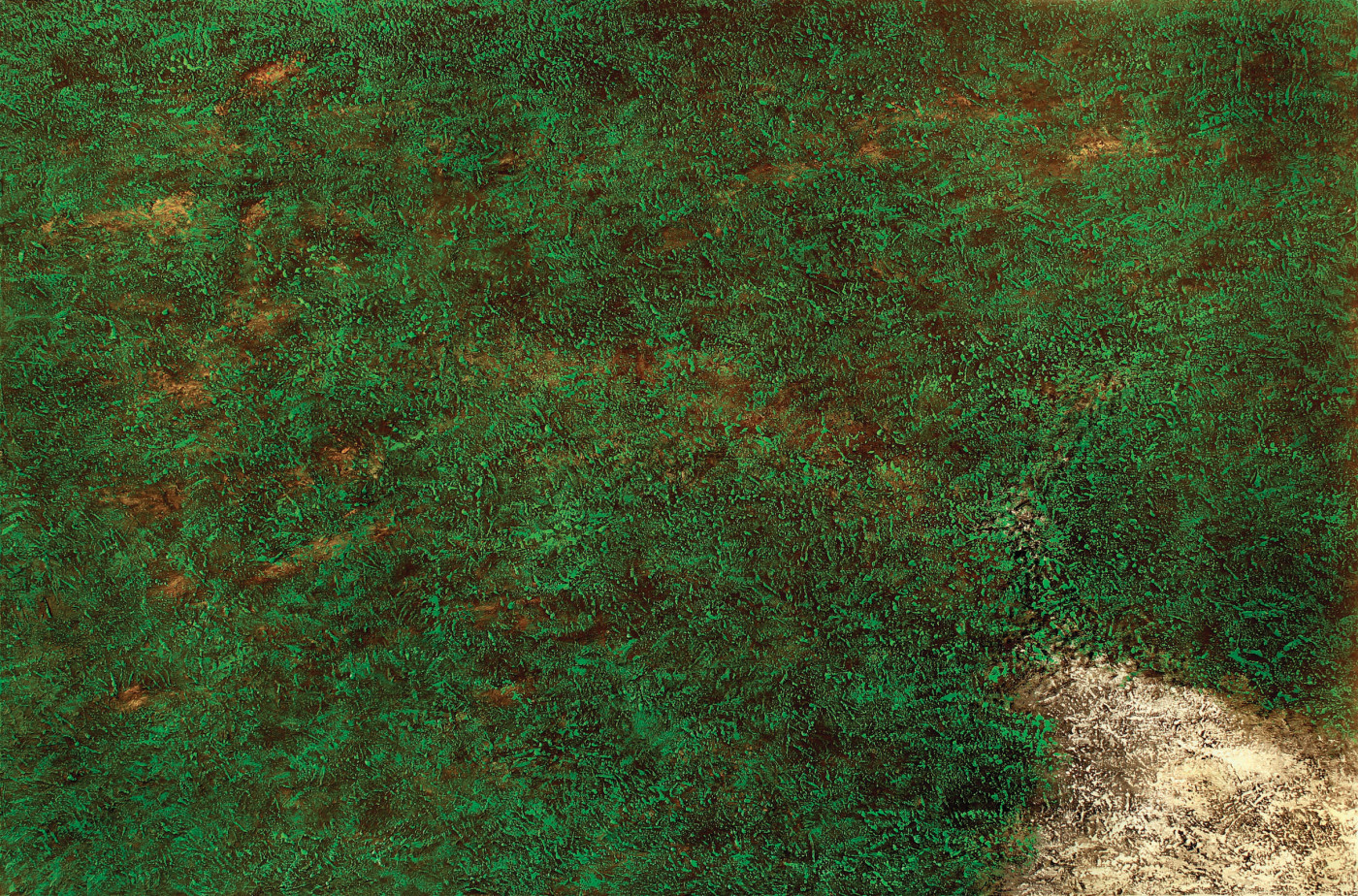
Untitled, 2013
OIl on canvas 48" x 72"
In Shifting Terrains, Paramjit Singh continues to employ his unique visual language in textural depictions of luminous landscapes. Rich, dense and vibrant oil on canvas works provide close, intimate views of enveloping wilderness – clustering trees, sprawling grass and foliage, and flowing bodies of water. Devoid of specificity of time and place, his works evoke an impression of nature, materializing as memory. The forms of nature are suggested – hinted through dynamic brushstrokes and brilliant flecks of color – emerging as familiar yet otherworldly environs. While his smaller and more subdued charcoal drawings offer another experience of nature and memory in light and shadow – in which lush forestation enfolds, suffuses, and transports. Imbuing his paintings with palpability, while shrouded in a sense of mystery, Singh explores that which is beyond the perceived, searching out memory and the visceral. His fictitious landscapes – boundless and without pictorial depth, quiet yet chaotic – trace topographies that reflect not only the movement and spontaneity of nature but the transcendent experience of it as well.
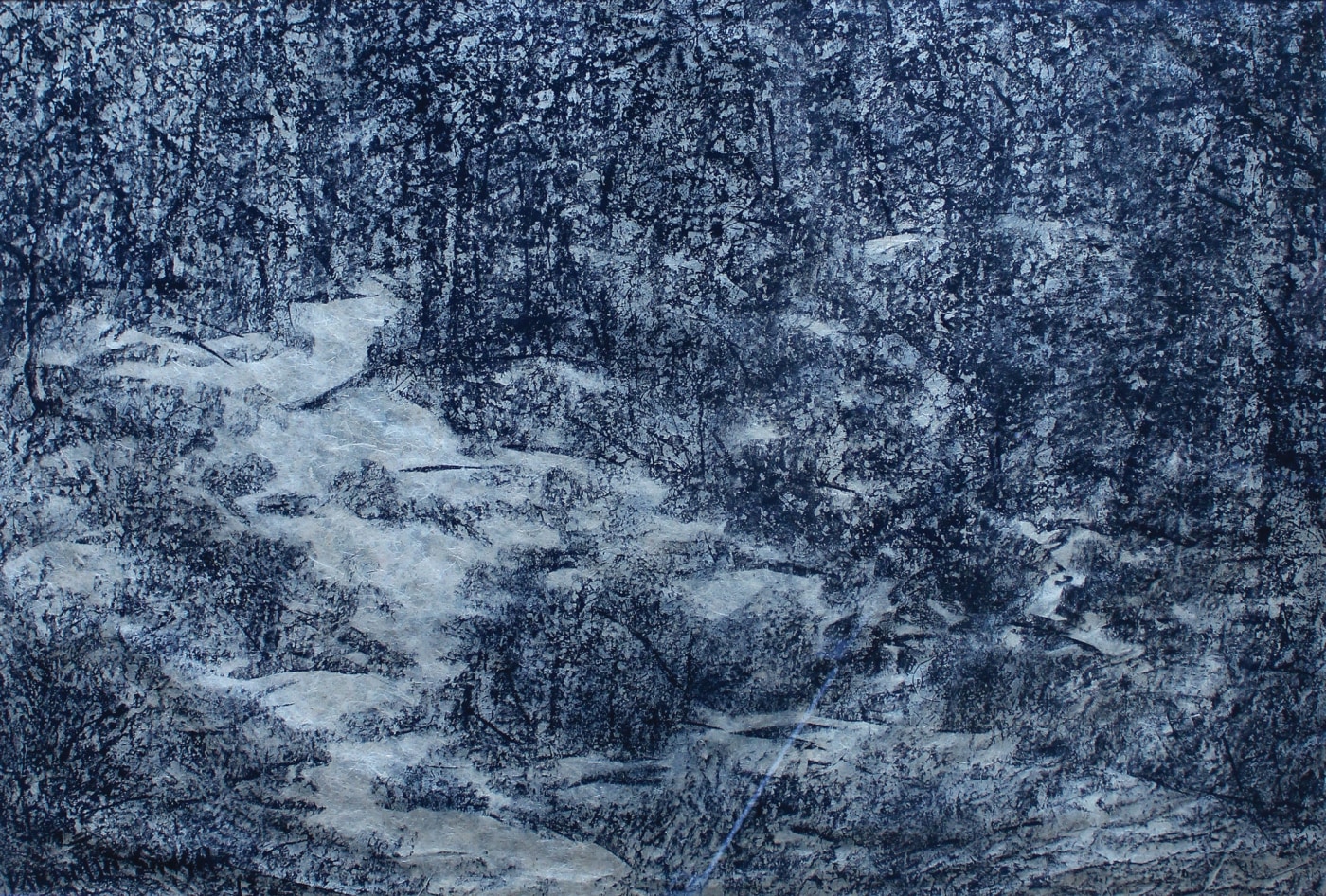
Untitled, 2013
Charcoal crayon on paper 14 1/2" x 22"
Paramjit Singh was born in 1935 in Amritsar, India, and studied art at the Delhi School of Art. In 1963 he joined the Faculty of Fine Arts at Jamia Millia University in Delhi and continued to teach until 1992. Since his participation in the Young Asian Artists Exhibition in Tokyo, Japan in 1957, Singh’s works have been exhibited in group and solo exhibitions worldwide, including the XV International Biennale in Tokyo, Japan; International Triennial in New Delhi, India; Bhopal Biennale; and in exhibitions at The National Gallery of Modern Art in Mumbai and the National Gallery in Delhi. Singh’s works are in the collection of the National Gallery of Modern Art, New Delhi and he, along with his paintings, have been the subject of the experimental film The Seventh Walk, directed by Amit Dutta.

